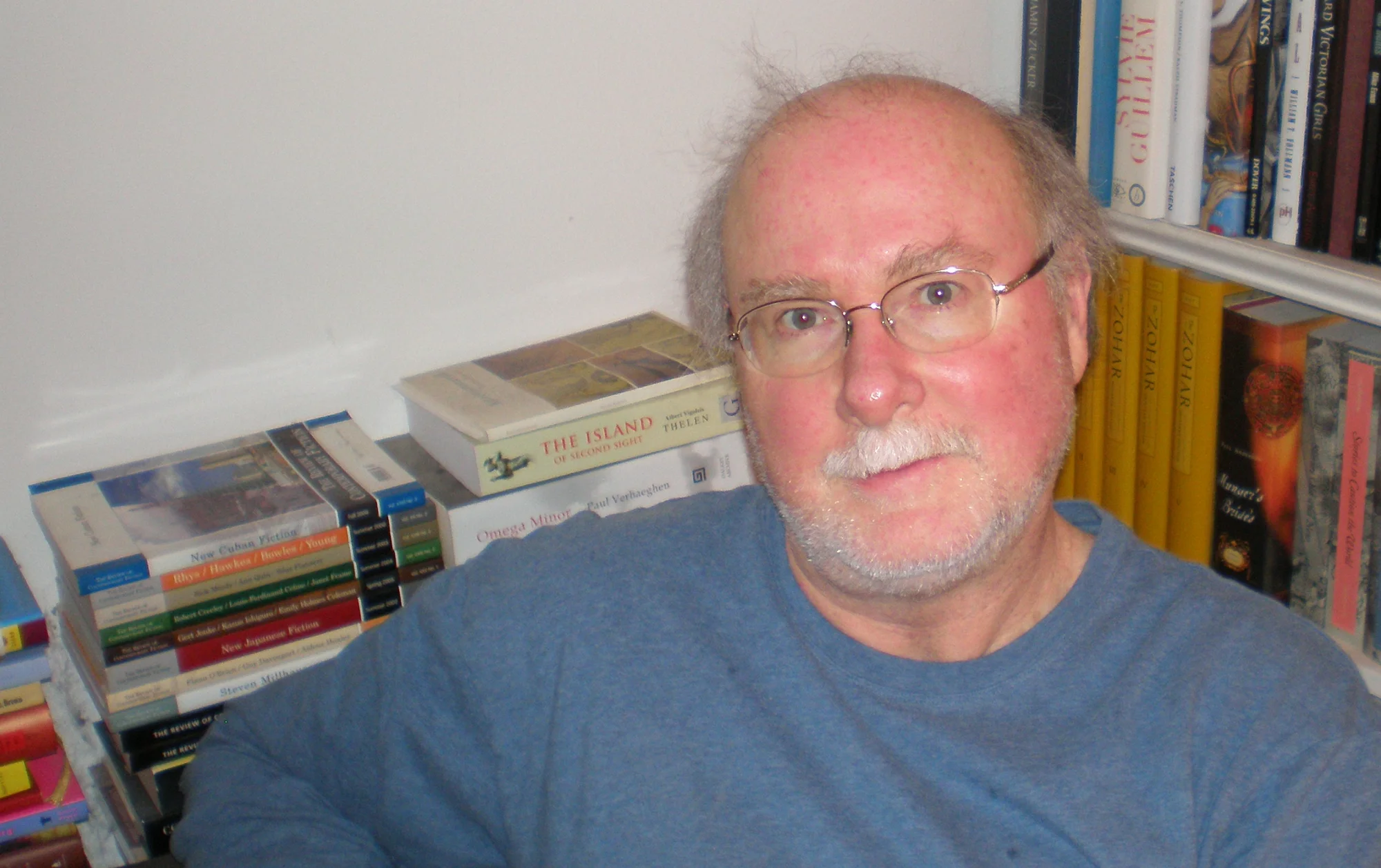A feature by Taylor Davis-Van Atta
In the late 1990s, Ukrainian Victoria Polevá abandoned her own successful career as an avant-garde composer of polyphonic music in pursuit of the “absoluteness of renunciation, the pureness of an experiment.” Interweaving sacred and secular texts and musical traditions from a wide variety of eras, Polevá has since defined herself as one of Eastern Europe’s most original composers whose works are routinely performed by leading ensembles and soloists around the globe. In 2005, the world-famous violinist Gidon Kremer included Polevá’s “Warm Wind” in his concert cycle Sempre Primavera. Speaking here “completely unarmed, impoverished, down to zero” from amid the burning tumult of Kiev, Victoria Polevá addresses her daring evolution as a composer, the origins of her passion, the nature of collaborating with Kremer, and sorrow as a creative act. Music & Literature is honored to present the first English-language interview with Ukrainian composer Victoria Polevá . . .
Perhaps the video-game developer Jason Rohrer has the same issue that writers have: Passage shows his drive to create a type of art out of one’s personal and private thoughts. What makes the video game so special is the need for interactivity: that instead of reading about someone’s voyages, we become the author—that when we play, we become Rohrer—his anxieties become our anxieties; his fears are our fears . . .
A feature by Kolin Jordan
The experimental Mexican author Mario Bellatin is not concerned for your comfort. He doesn’t care if you get lost. His narration will jump from one scene to the next and if you trip on the lip of a conjunction or fall behind as he darts around the corner of a participle, that’s on you.
A feature by Emily Hoffman
László Krasznahorkai’s Animalinside is, in itself, already an adaptation. The Slovakian choreographer Jaroslav Viňarský has adapted Krasznahorkai’s novella for dance. The performance embodies the modes of existence the text describes, and yet does so within its own aesthetic parameters, with its own aesthetic integrity. At its best, the performance builds upon the original dialogue between the book’s text and images, and becomes a third surface for interpretive ricochet . . .
A feature by Nairi Galstanian
In 1969, the Armenian film director Sergei Parajanov released his masterpiece Sayat-Nova. A world-cultural event, the film prompted Andrei Tarkovsky to deem Parajanov “a genius” and Michelangelo Antonioni to proclaim the film “of a stunningly perfect beauty… Parajanov, in my opinion, is one of best film directors in the world.” For Tigran Mansurian, the Armenian composer who, with its score, invented a new musical language, Sayat-Nova was “an extraordinary phenomenon of universal importance.” Based on the life of the eighteenth-century poet and musician Sayat-Nova (King of Song), the film was released in English under the title The Color of Pomegranates. In the following interview, which took place during the summer of 2006, Mansurian offers a unique point of inquiry to Parajanov’s creative world as well as his magnum opus. Music & Literature is grateful to Tigran Mansurian for the opportunity to present this conversation for the first time in English.
A feature by Mauro Javier Cardenas
On June 26th, 2012, I found myself touring San Francisco with László Krasznahorkai, who was on his first U.S. tour, promoting the release of Sátántangó. During lunch with László and his wife in Chinatown, I received an email asking if I would moderate a discussion with László at City Lights Books the next day. Presented here for the first time is our conversation from before and after László Krasznahorkai’s appearance at City Lights on June 27th, where the overflowing crowd stood enraptured by his impassioned answers. All the while, László spoke in long, warm monologues, which brought to mind the intense monologues of György Korin, the hero of his novel War & War.
A feature by Jeff Bursey
Scholar, editor, and literary historian Steven Moore has gained notoriety as the preeminent explicator of William Gaddis’s fiction. A tireless champion of maximalist and so-called “experimental” fiction, Moore has helped to publish and edit works by David Markson, Joseph McElroy, Rikki Ducornet, Alexander Theroux, and David Foster Wallace, among many others. In 2004, Moore embarked on the ambitious, multi-volume The Novel: An Alternative History, the second volume of which was released this past summer. The project, nearly a decade in the making, is as much an effort to reconceptualize the contemporary definition of the novel form as it is an attempt to revolutionize the manner in which we discuss fiction. On a hiatus from writing, Moore reflects on his own early development and the project that has changed his life with fiction writer and literary critic Jeff Bursey.
Music & Literature is proud to debut the complete and comprehensive catalog of Gerald Murnane's remarkable personal archives. Murnane is the reclusive Australian author of eleven works of fiction, and has for decades accumulated an impressive collection of literary, personal, and creative manuscripts, including his legendary Antipodean Archive. Murnane has stated that these archives will not be made public until after his death, but here we are given a glimpse into his many worlds. Revered in his home country and deemed "a genius on the level of Beckett" by Teju Cole, Murnane is regularly rumored as a candidate for the Nobel Prize.









